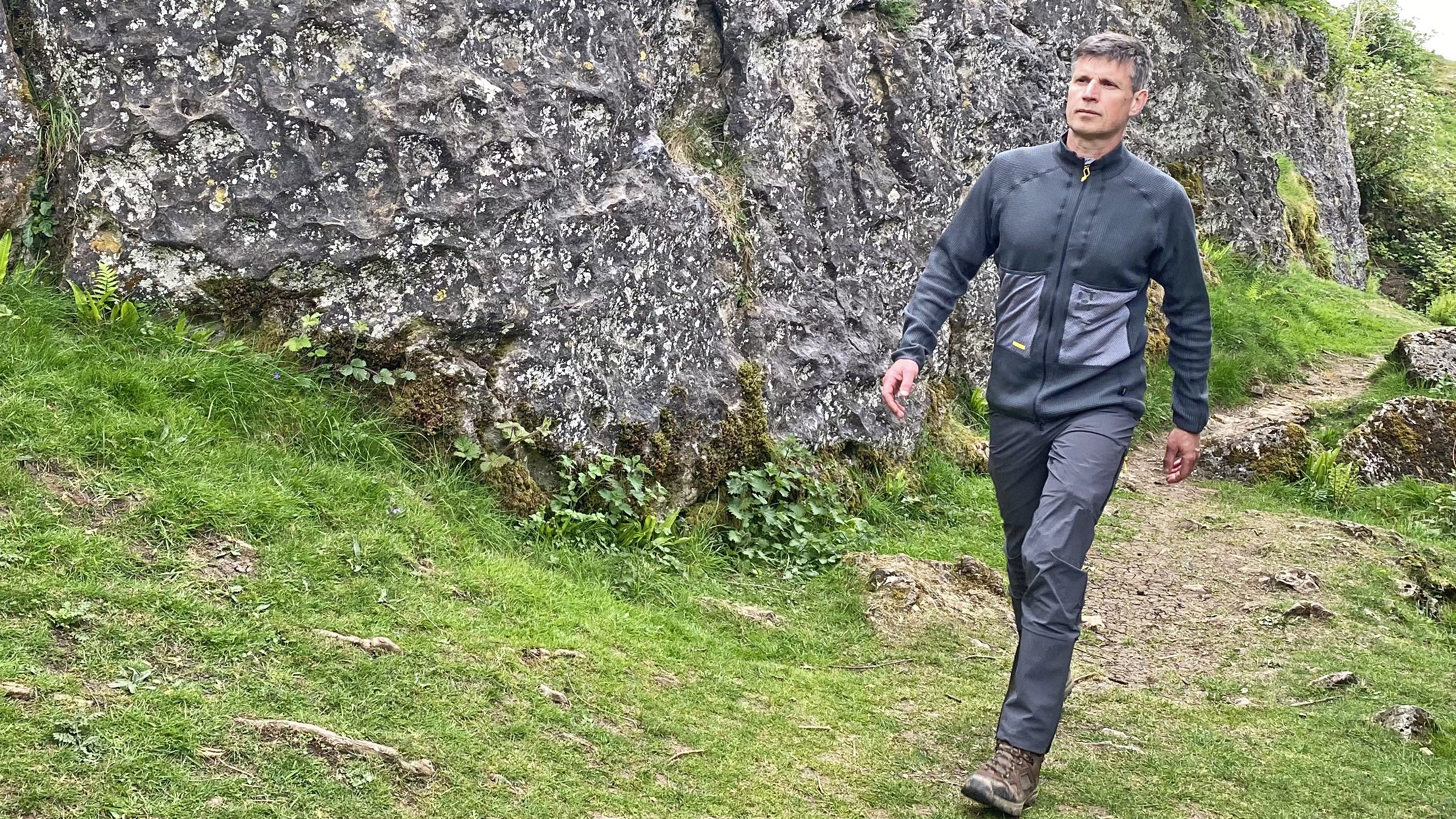Advnture Verdict
A technical piece of kit designed for use in conjunction with the other layers in the L.I.M. ZT collection, and in quite specific circumstances, the minimalist ZT II Air midlayer certainly isn’t for everyone, but if you’re alpinist, a mountaineer, an all-weather rock climber or a serious hill walker – and you have the kind of bank balance that can cope with Haglöfs’ frankly frighteningly steep prices – then this innovative top could be a useful addition to your outdoor wardrobe. The easy access flask friendly chest pockets are a particularly interesting concept.
Pros
- +
Incredibly light
- +
Extremely breathable
- +
Capacious chest pouches (for flasks and other items)
- +
Reflective elements
- +
Comes with storage sack
- +
Made with recycled materials
- +
Next-to-skin comfort
Cons
- -
Eye wateringly expensive
- -
Needs to be worn with other layers to work
- -
Warm when you're moving, but low thermal protection when stationary
- -
Offers no protection from the wind
- -
Oversize front pockets aren’t for everyone
You can trust Advnture
First impressions
The acronym in Haglöfs L.I.M. collection stands for Less is More, and the top-end Swedish outdoor brand have taken this concept to the nth degree with the ZT II Air midlayer, which literally seems to feature as much air as it does tangible product. I was genuinely quite surprised when I first got my hands on this top, which has what can only be described as a highly porous design – a bit like, well, a teabag. It certainly doesn’t look like your standard fleece jacket – not least because it’s not made from fleece. Instead this midlayer is constructed with Polartec Power Dry, a (mostly) synthetic material, and it has an extremely open weave, so you see right through it – and the wind cuts right through it too.
List price: $250 (US) / £185 (UK)
Models available: Men’s & women’s
Sizes: Men’s: S–XXL; Women’s: XS–XL
Materials: Polartec Power Dry
Weight (Men’s large): 9.4oz / 266g
Colors: Magnetite
Compatibility: Mountaineering, climbing, hiking, trekking, backpacking, fastpacking
Looking at it, and contemplating the price tag, I honestly wondered whether someone was pranking me. It turns out they weren’t. It put me in mind of some of the very expensive barefoot shoes out there (and Polo mints), where it feels like you’re being charged for the bits that aren’t there. Convincing people to shell out serious amounts of money for kit that is extremely minimalist is a tough ask – you need to make a very compelling case about what the apparel brings to the party in terms of performance, and not reply purely on the fact that it's light.
In this spirit, and for the sake of fairness, it’s important to remember that this midlayer has been designed to work not as a stand-alone top for people ambling around fields and forests, but as part of a highly a technical and very lightweight layering system intended for use primarily by alpinists, climbers and high-alpine explorers, clinging to the sides of mountains.
I do understand this, and while it’s quite tempting to conclude that this midlayer is actually just the inner of a shell jacket, masquerading as a separate piece of apparel, there is a real benefit from being able to remove a layer when you’re overheating during a dynamic activity like climbing. Again, though, making a something this expensive and then using the fact it can be taken off easily as a selling point does seem quite a reach.
But, keeping an open mind, I set off to test the Haglöfs L.I.M. ZT II Air Mid in the mountains to see whether its performance could justify its price tag.
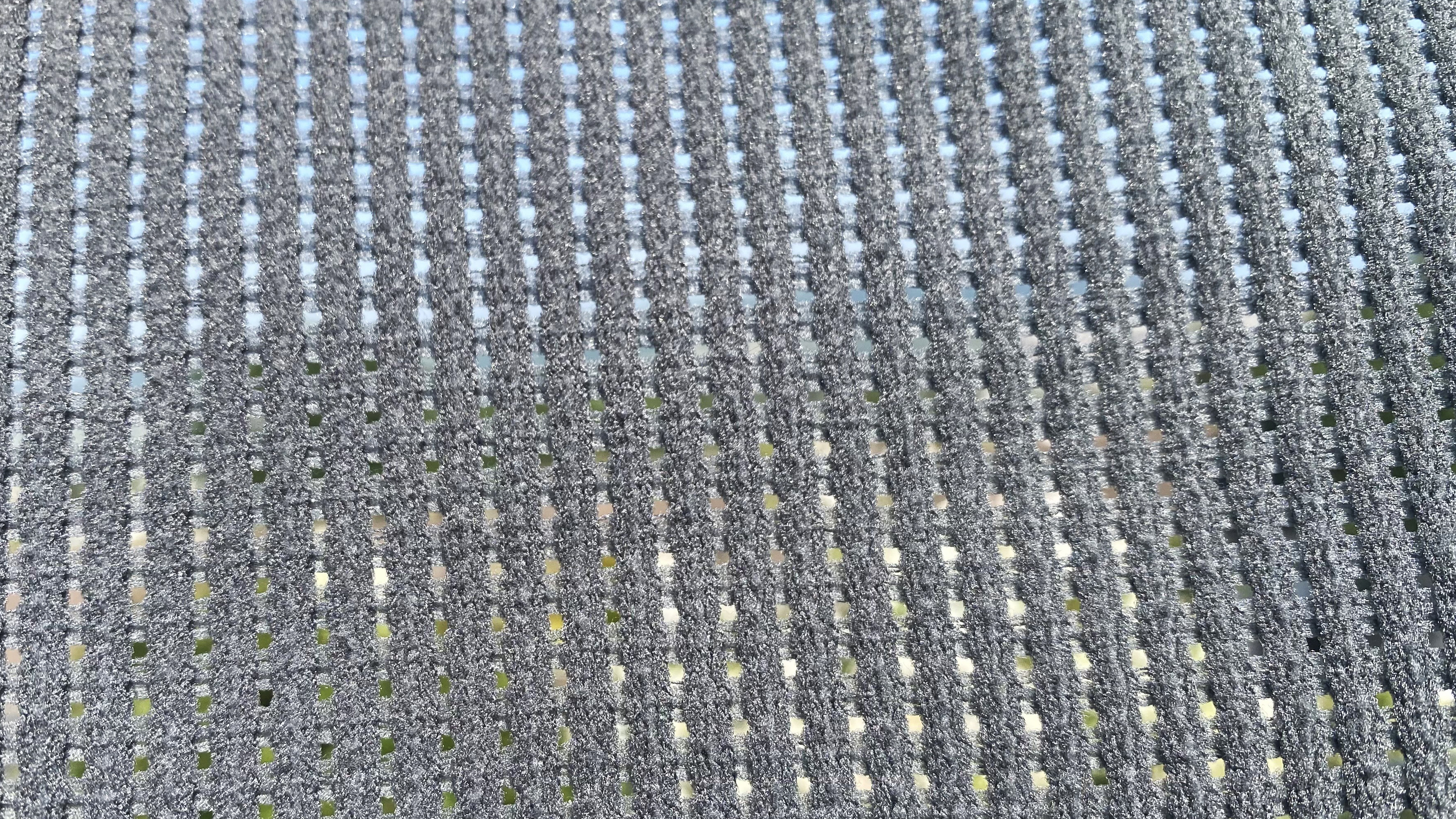
Materials
Available for men and women, the L.I.M. ZT II Air Mid top is made from Polartec Power Dry fabric, with a bi-component knit. The largest material component of the garment is 100% recycled polyester (156g/m2), with some lyocell and elastane thrown in to provide some essential dynamic stretch for when you're reaching for a hold. Interesting, considering it’s clearly not waterproof, the fabric has been treated with a PFAS (PFC)-free durable water repellent (DWR), and it’s all bluesign approved.
The result is a garment that boasts excellent moisture-wicking properties. You only need to look at it to see how lightweight and breathable it is, but it's also hydrophobic (thanks to the DWR) and quick drying. It is comfortable when worn next to the skin, although this midlayer has been design to be worn over the top of the L.I.M. ZT base layer (or indeed any other base layer), and beneath a waterproof shell jacket such as the L.I.M. ZT II GTX.
All the latest inspiration, tips and guides to help you plan your next Advnture!
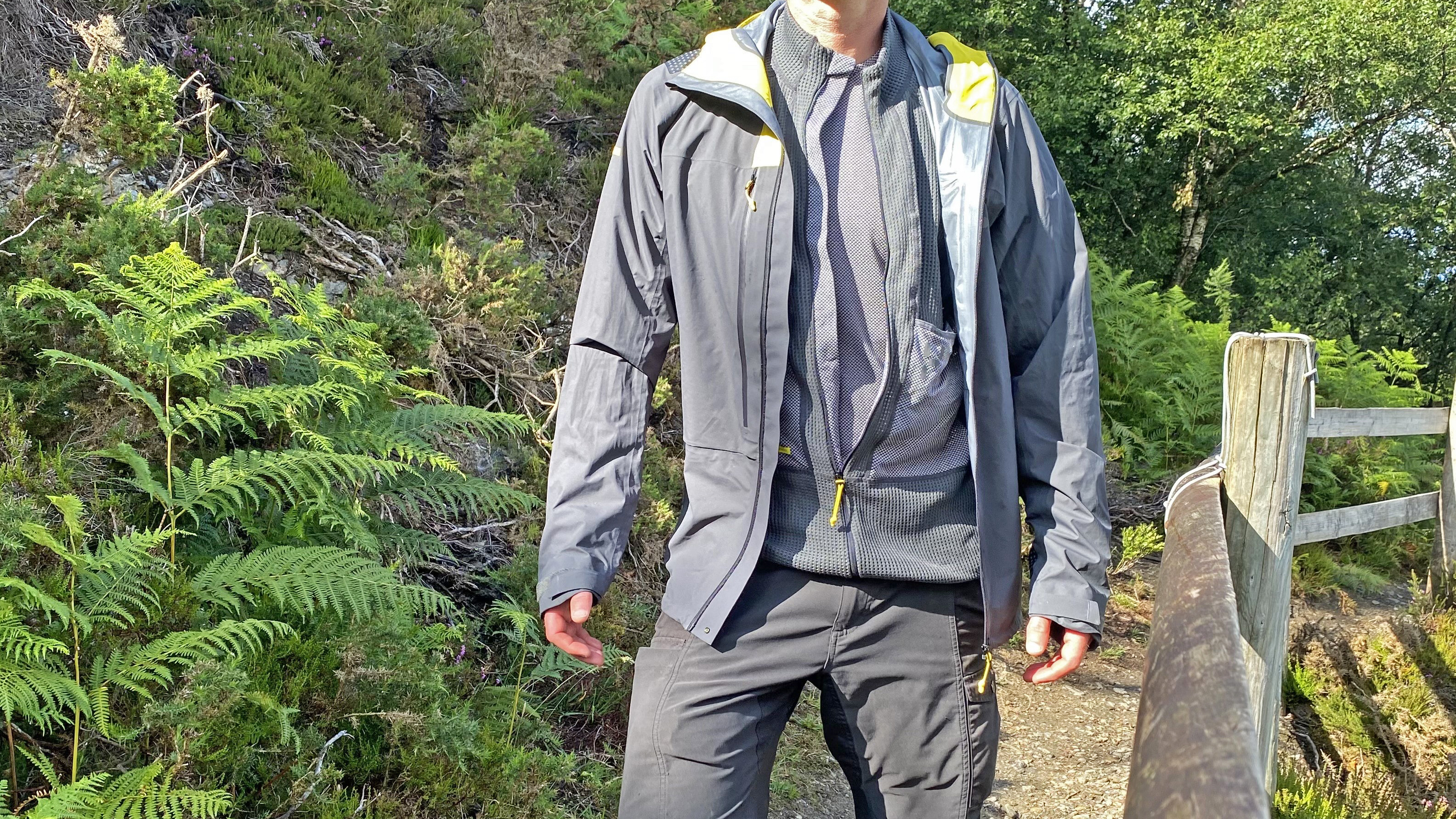
Design
This top is designed to let your body breathe when you’re engaged in dynamic activities such as hill hiking, rock climbing, scrambling, mountaineering and cross-country skiing (when you will work up a sweat even when it’s wet and chilly outside), while being extremely lightweight to carry, either on your person or in a backpack.
However, there is more to it than just this. It’s also designed to help keep you thermally protected, by trapping air in the gaps between the weave beneath your shell layer – air that your body will then warm up.
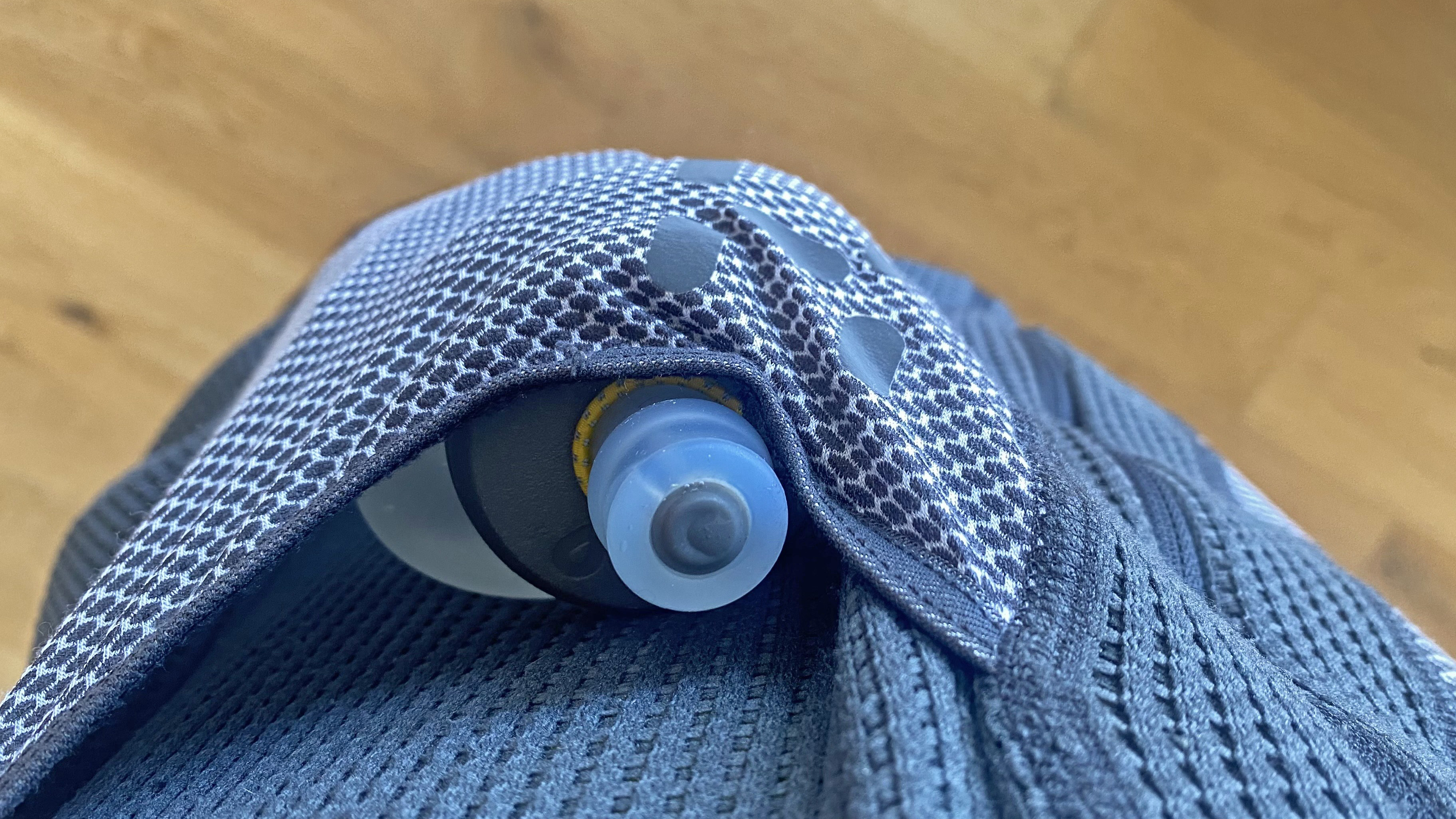
Aside from the unusual open-weave construction, the most prominent part of the design is the inclusion of two oversize front pouches. These can accommodate all kinds of stuff (from maps and nutrition through to your phone), but Haglöfs have specifically made them with water bottles – or more likely running-style flasks – in mind, and have included a couple of elasticated loops to help secure these in place. Somewhat surprisingly (given the apparel-industry’s tendency to remove pockets from women’s clothing), both the men’s and women’s version of the ZT II Air Mid feature these pouches.
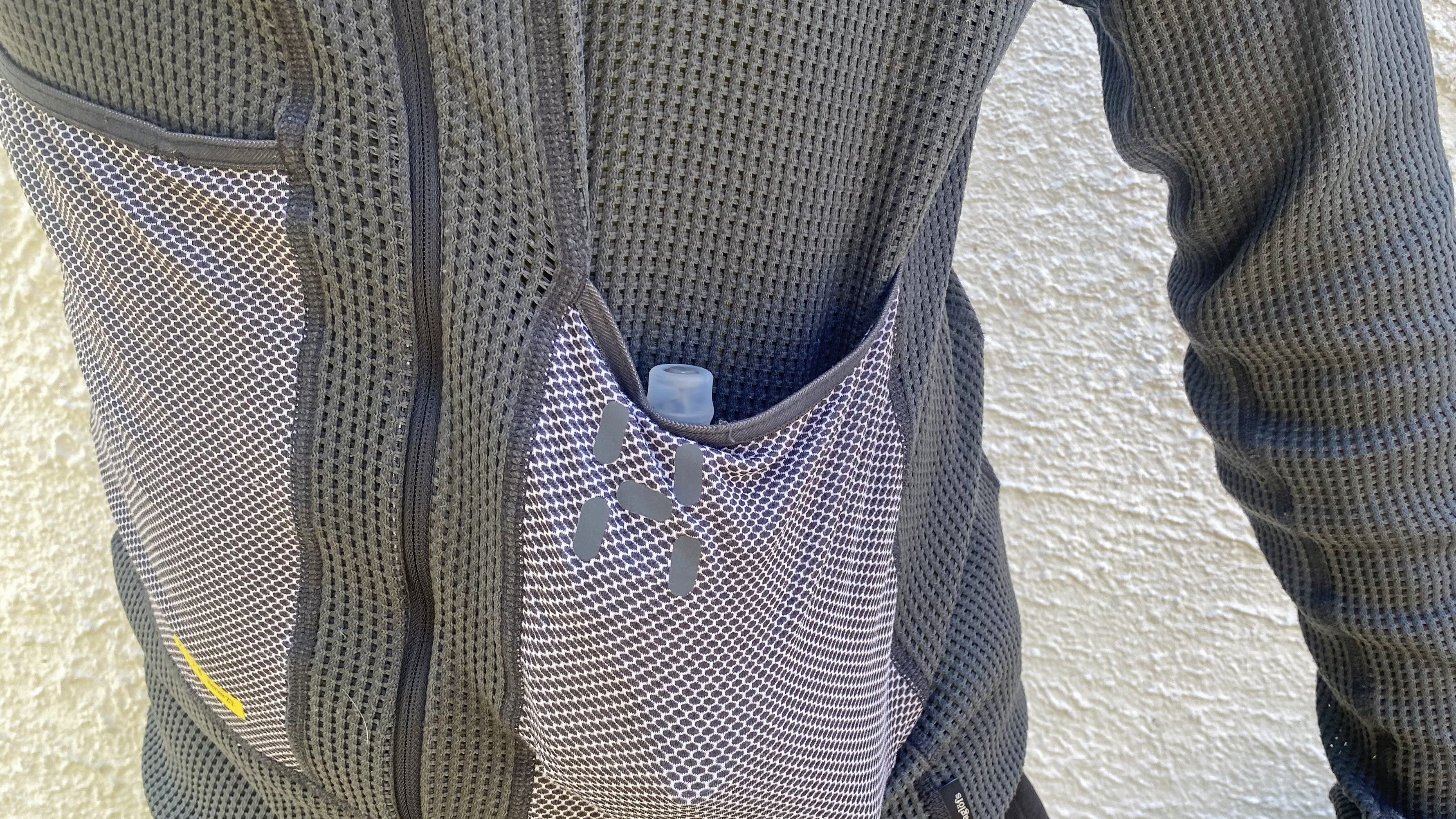
The top features a full-length zip, an easy-to-locate zip-pull, elasticated cuffs (complete with thumb loops) and a tall neck with a zip garage to prevent users snagging skin/beard. Other useful flourishes include a hang-loop on the rear and a couple of small reflective elements. It comes with its own little stuff pouch.
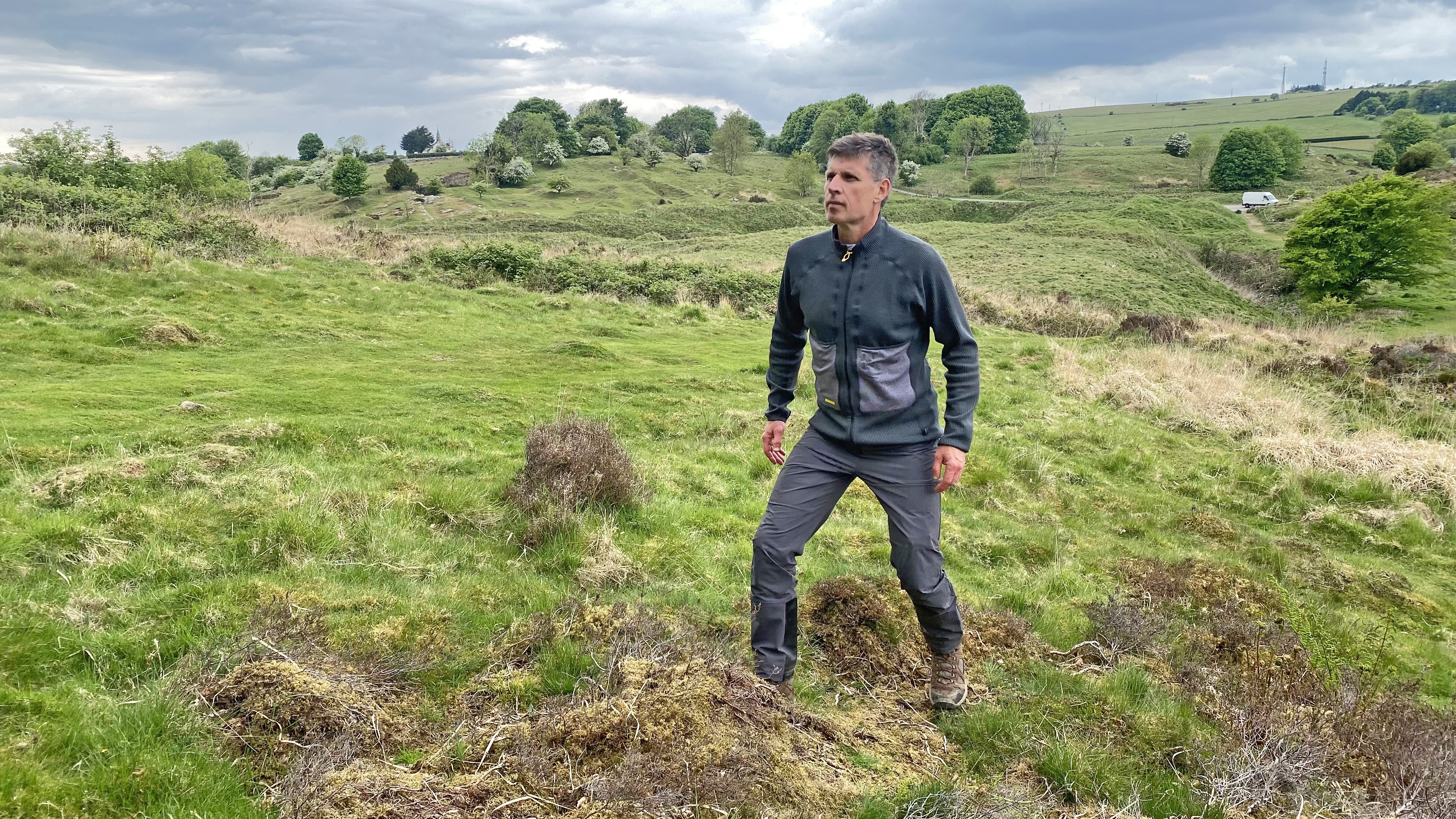
On the trails and in the hills and peaks
I have been testing the ZT II Air Mid on Dartmoor, in the Mendip Hills and amid the peaks of the Wicklow Mountains, which, although not particularly high, are certainly prone to the kind of very changeable weather that makes careful layering so crucial.
Initially, during a spell of warm weather, I was wearing it over the top of a standard technical T in the evenings, when the temperatures dropped a little, and it worked well as a light top, until a chilly northerly breeze joined the party, and then I found the highly porous open-weave design a problem, and the wind was cutting right through the top and cooling me down too much. Subsequently, when venturing out of the valleys and into the peaks, I started wearing it in conjunction with the Haglöfs L.I.M. ZT base layer and the new L.I.M. ZT GTX jacket, and began to appreciate its properties a lot more.
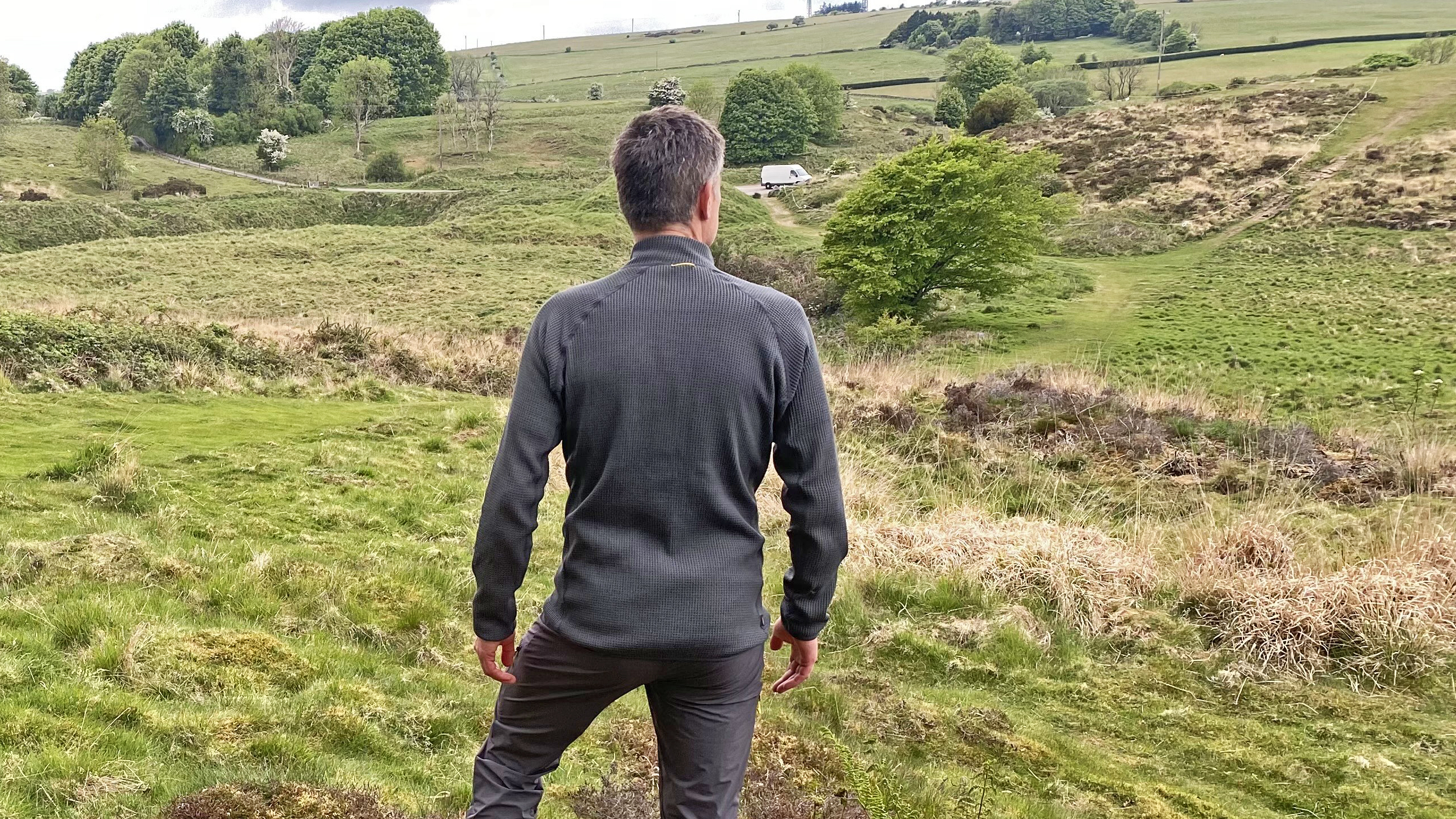
It’s pretty obvious, from the oversize gaps in the weave, that the ZT II Air Mid will let your body breathe well, but it’s not until you are actively engaged in a energetic activity like climbing that you properly appreciate how much more comfortable this feels in comparison to the performance of more traditional tops.
When I was on the higher slopes of the Wicklow Mountains – scaling the steep point of Great Sugarloaf and the lofty summit of Lugnaquilla – conditions were wet enough to require layers, but sufficiently warm that I needed plenty of ventilation to avoid getting drenched from the inside.
The Polartec Power Dry fabric, which is hydrophobic (so it soaks up very little water) and wicks moisture away from your body, combined with the open-weave design of the ZT II Air Mid worked perfectly in these conditions. Because it doesn’t get properly wet it stays lightweight, and still kept me warm when the northerly wind started whipping across the top of Lugnaquilla and I was entirely enveloped in the embrace of a cold cloud.
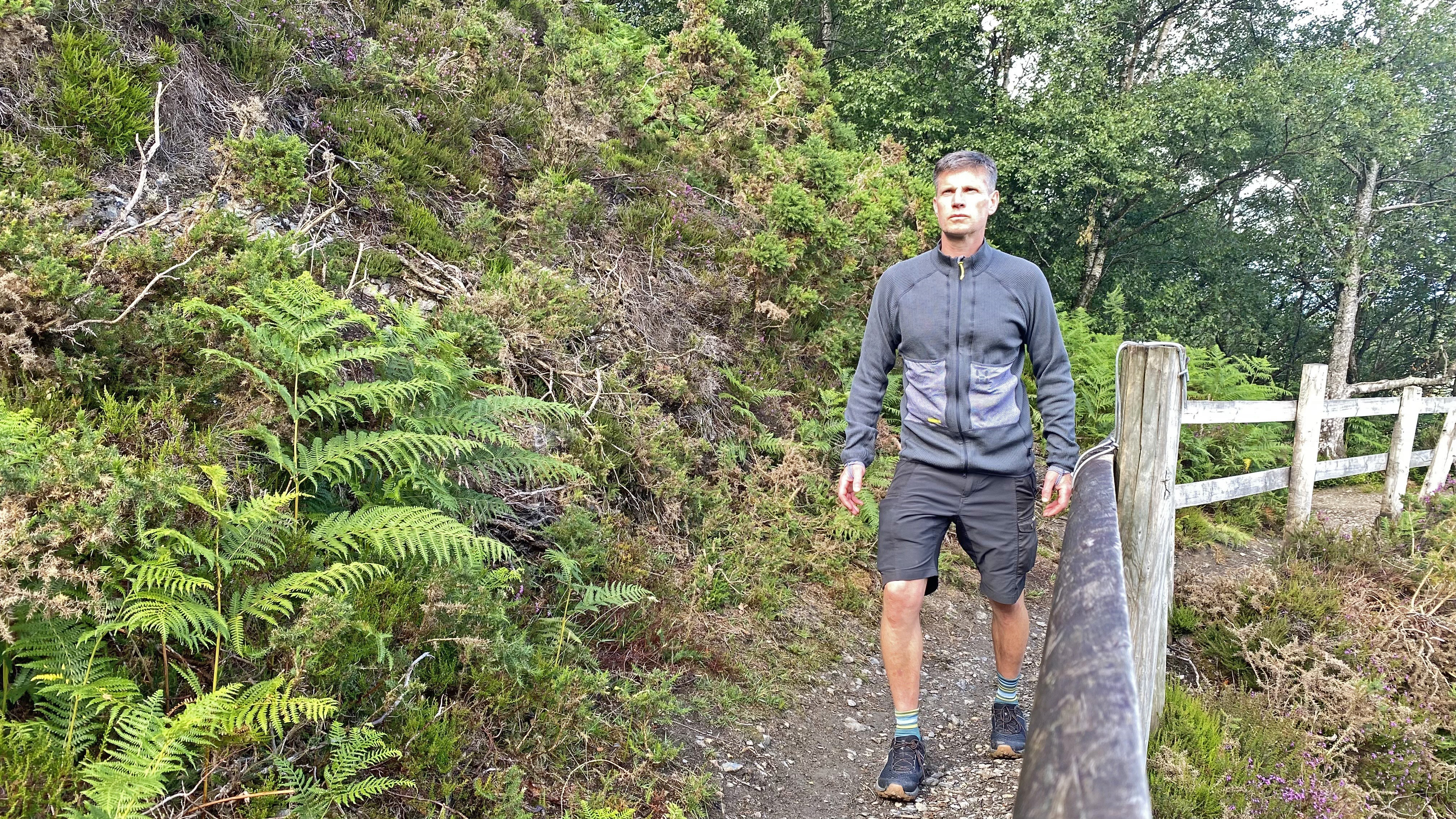
These garments have been designed for use on much taller mountains, and in more extreme conditions than I was in, however, and while I was comfortable in summer at 3,000ft (900m), I’d definitely be packing more layers if I was venturing much higher in colder weather – because, while the breathability is beautiful during the hard work of the climb, you do cool down very quickly once you stop moving.
One element I found fascinating on this top was the chest pouches. These are not the most aesthetically pleasing features – they look a bit weird even when empty, and when you start putting things in them they inevitably sag. But, quite rightly, this garment prioritizes function over fashion, and these large, easy access pockets allow you to keep things very close to hand and simple to find while you are climbing. This might be your phone, some food or a hydration flask.
With the latter purpose in mind, Haglöfs’ designers have included a couple of little elasticated loops to keep flasks nozzle-end up, making them easier to sip from and less likely to bounce around and leak. This feels a bit odd at first, but it’s not dramatically different to the way you carry water in a race vest during long runs. If you’re carrying daypack for your peak push, you might prefer to use a hydration bladder, but keeping water closer to your body does mean it’s less likely to freeze during trips to higher peaks (something that has happened to me when I ventured above 19,000ft (5,900m), leading to me getting very thirsty.
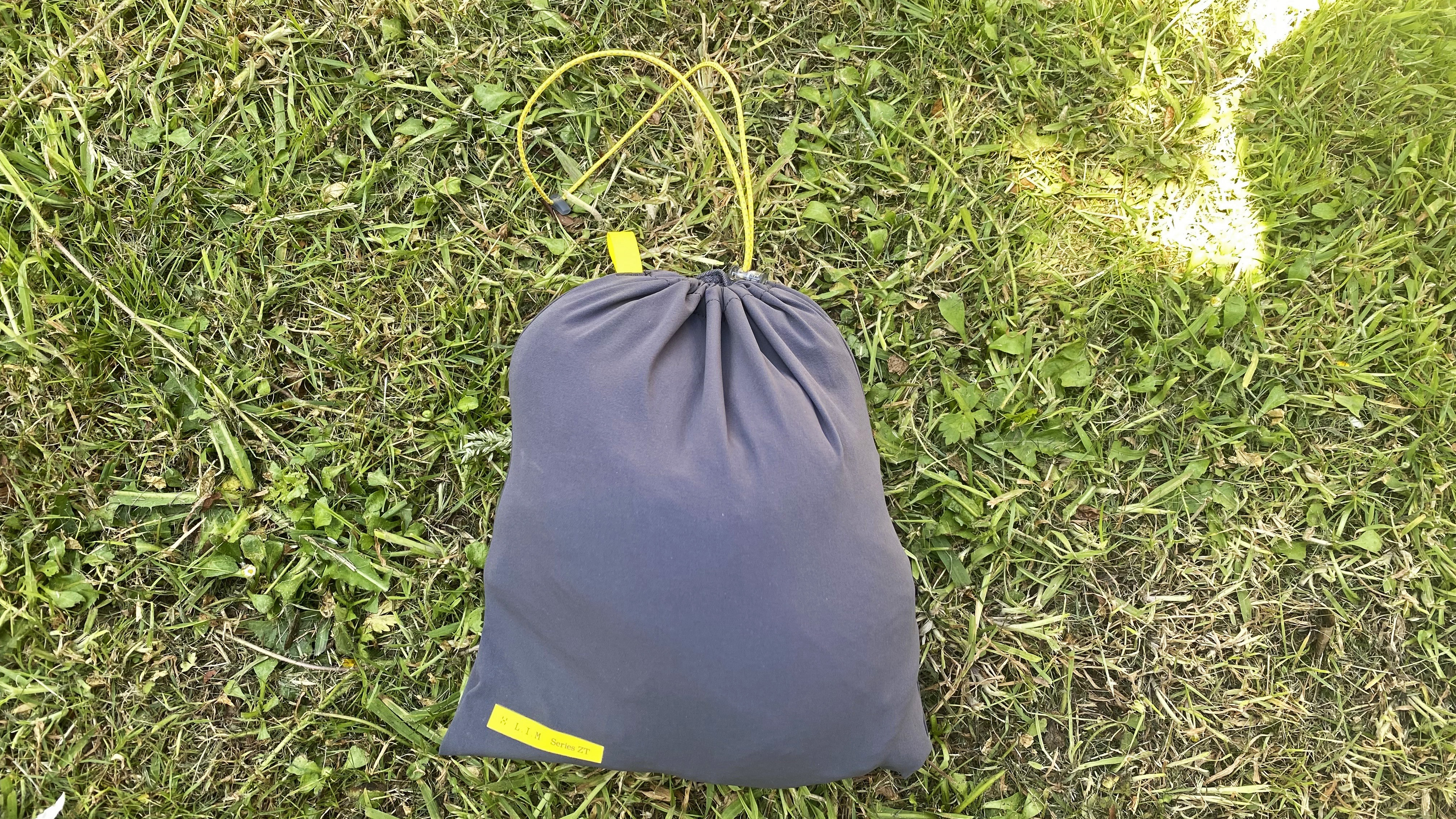
Final thoughts
Despite being initially put off by the sky high price of this technical top, and the fact that it can typically only be used in conjunction with additional garments (either from Haglöfs’ pricey L.I.M. ZT range, or other base and shell layers), I warmed to the ZT II Air Mid during the testing process. It is a very tailored piece of kit designed for use in quite specific circumstances, but in those scenarios – which are more wide ranging than I initially appreciated, ranging from true alpine adventures to more modest hill-hiking outings in highly changeable conditions – it’s very good.
It's comfortable to wear, and boasts several genuinely innovative features. As mentioned, the ZT II Air Mid also comes with its own stuff sack, which is all well and good, but most people would probably prefer to see a lower price tag.
Also consider
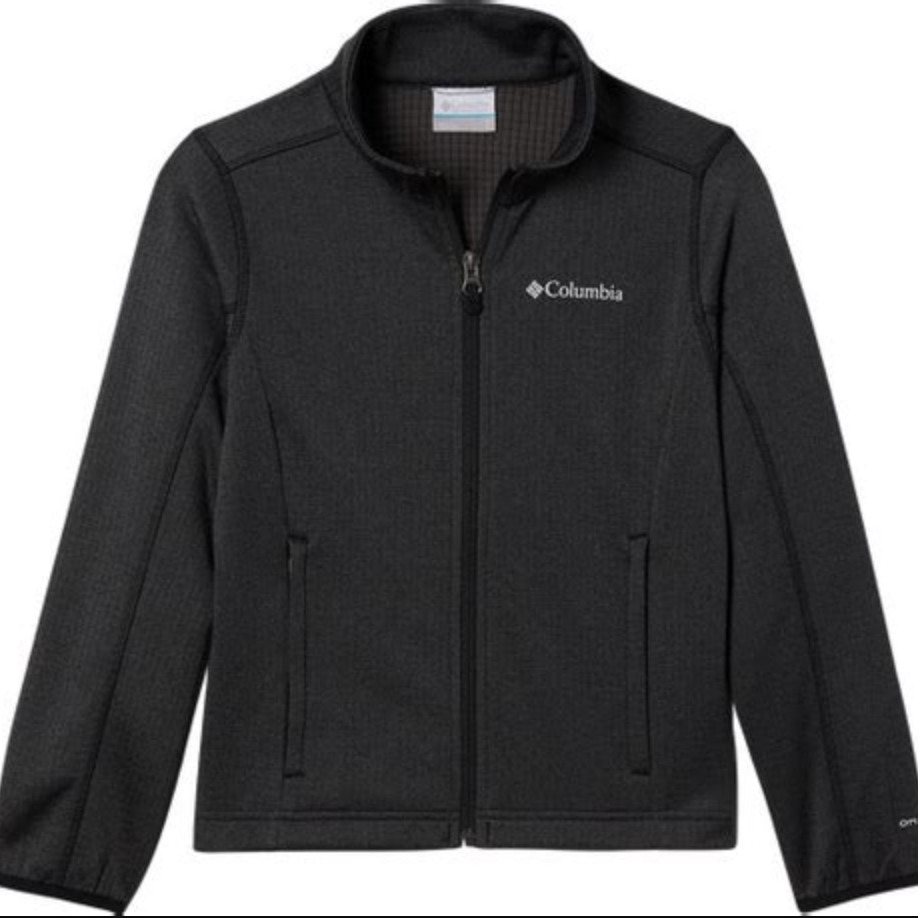
If you're looking for a reasonably lightweight midlayer, with a much lower price tag, the Park View Fleece from Columbia is a functional top that still wicks moisture away from your body, keeps you warm when temperatures drop, and allows for plenty of movement. It's not made from recycled fabric, and it's nearly twice the weight of the ZT II Air, but it's much more affordable and works better as a stand-alone top.
Pros
- Versatile
- Omniwick inner gives excellent moisture control
- Comfortable
- Thumb loops
Cons
- No recycled content
- Not the warmest
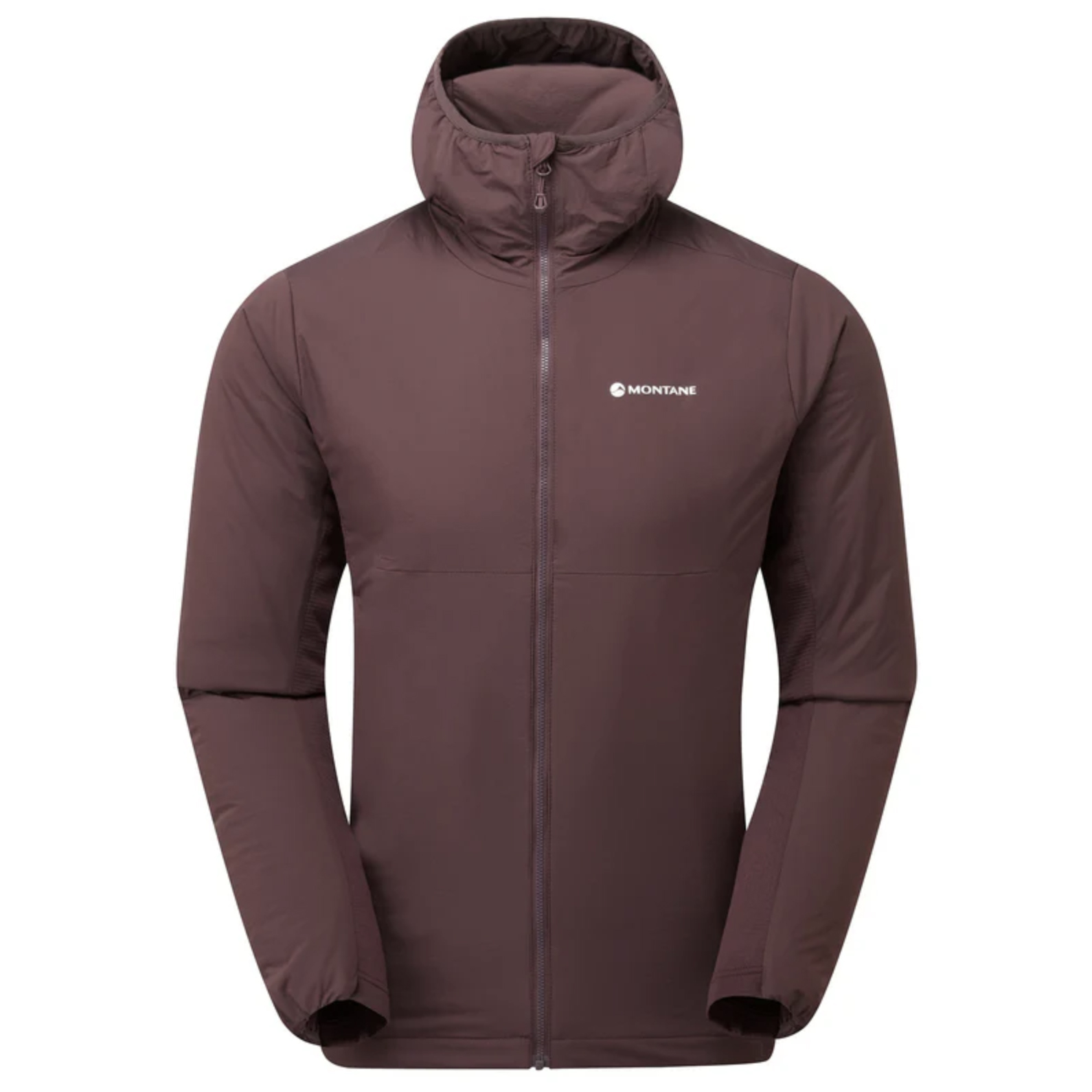
Our expert reviewer considered this top as close to 'the perfect midlayer'. It's lightweight and breathable, and the use of recycled insulation makes it a versatile and truly effective garment across all seasons, either as a midlayer in the colder months, or as an outer layer when conditions are warmer. It has a hood, and comes in a range of colors.
Pros
- Excellent warmth-to-weight ratio
- Breathable
- Stretchy
- Good hood
- Uses recycled materials
Cons
- A bit pricey for a mid layer (but not for an outer layer)
Comparison Table
Midlayer | Haglöfs L.I.M. ZT II Air | Columbia Park View Fleece | Montane Fireball Lite Hooded Jacket |
|---|---|---|---|
List price | $250 / £185 | $60 / £65 | $249 / £200 |
Weight | 9.4oz / 266g | 15oz / 430g | 12.7oz / 360g |
Materials | Polartec Power Dry | Polyester Smooth Face Grid Back Fleece | Nylon (90%) Polyurethane (10%) with 100% recycled Polyester insulation |

Author of Caving, Canyoning, Coasteering…, a recently released book about all kinds of outdoor adventures around Britain, Pat has spent 20 years pursuing stories involving boots, bikes, boats, beers and bruises. En route he’s canoed Canada’s Yukon River, climbed Mont Blanc and Kilimanjaro, skied and mountain biked through the Norwegian Alps, run an ultra across the roof of Mauritius, and set short-lived records for trail-running Australia’s highest peaks and New Zealand’s Great Walks. He’s authored walking guides to Devon and Dorset, and once wrote a whole book about Toilets for Lonely Planet. Follow Pat’s escapades on Strava here and Instagram here.
